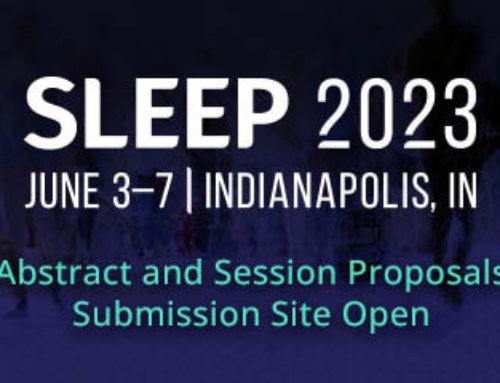WESTCHESTER, Ill. – A brief bout of non-REM sleep (45 minutes) obtained during a daytime nap clearly benefits a person’s declarative memory performance, according to a study published in the February 1 issue of the journal SLEEP.
The study, authored by Matthew A. Tucker, PhD, of the Center for Sleep and Cognition and the department of psychiatry at Harvard Medical School, focused on 33 subjects (11 males, 22 females) with an average age of 23.3 years. The participants arrived at the sleep lab at 11:30 a.m., were trained on each of the declarative memory tasks at 12:15 p.m., and at 1 p.m., 16 subjects took a nap while 17 remained awake in the lab. After the nap period, all subjects remained in the lab until the retest at 4 p.m.
It was discovered that, across three very different declarative memory tasks, a nap benefited performance compared to comparable periods of wakefulness, but only for those subjects that strongly acquired the tasks during the training session.
“These results suggest that there is a threshold acquisition level that has to be obtained for sleep to optimally process the memory,” said Dr. Tucker. “The importance of this finding is that sleep may not indiscriminately process all information we acquire during wakefulness, only the information we learn well.”
It is recommended that adults get between seven and eight hours of nightly sleep.
The American Academy of Sleep Medicine (AASM) offers the following tips on how to get a good night’s sleep:
- Follow a consistent bedtime routine.
- Establish a relaxing setting at bedtime.
- Get a full night’s sleep every night.
- Avoid foods or drinks that contain caffeine, as well as any medicine that has a stimulant, prior to bedtime.
- Do not bring your worries to bed with you.
- Do not go to bed hungry, but don’t eat a big meal before bedtime either.
- Avoid any rigorous exercise within six hours of your bedtime.
- Make your bedroom quiet, dark and a little bit cool.
- Get up at the same time every morning.
Those who suspect that they might be suffering from a sleep disorder are encouraged to consult with their primary care physician or a sleep specialist.
SLEEP is the official journal of the Associated Professional Sleep Societies, LLC, a joint venture of the AASM and the Sleep Research Society.
SleepEducation.com, a patient education Web site created by the AASM, provides information about various sleep disorders, the forms of treatment available, recent news on the topic of sleep, sleep studies that have been conducted and a listing of sleep facilities.
For a copy of this article, entitled, “Enhancement of Declarative Memory Performance Following a Daytime Nap is Contingent on Strength of Initial Task Acquisition,” or to arrange an interview with an AASM spokesperson regarding this study, please contact Jim Arcuri, public relations coordinator, at (708) 492-0930, ext. 9317, or jarcuri@aasm.org.
# # #








